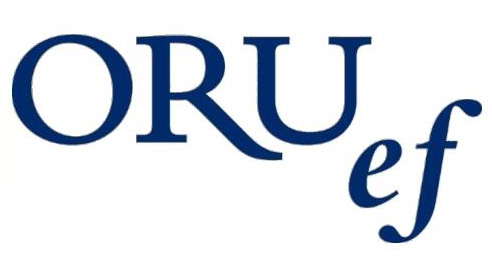
by Amarilys Galindo
Introduction
Evaluation in education is a systematic and integral process that involves the collection, analysis, and interpretation of information to assess the achievement of educational objectives. It serves as a cornerstone in the teaching and learning environment, offering critical feedback to both educators and students. By evaluating the effectiveness of teaching strategies, methods, and materials, it plays a vital role in curriculum development and the continuous improvement of educational practices. Through this process, educators can make informed decisions that guide instructional choices and shape educational policies, ultimately contributing to the holistic development of students.
Understanding Academic Evaluation
Academic evaluation serves as a critical tool in education, designed to measure and enhance students’ learning experiences. It encompasses a variety of functions, including diagnostic, formative, summative, and developmental assessments, each playing a distinct role in the educational process. Diagnostic evaluations help identify students’ strengths and areas for improvement, while formative assessments offer ongoing feedback that guides instructional adjustments. Summative evaluations provide a comprehensive overview of students’ achievements at the end of an instructional period, and developmental evaluations support the continuous growth of both students and educators. By integrating these evaluation methods, educators can create a balanced approach that not only measures knowledge but also fosters meaningful learning and practical application in real-world contexts.
Preparing Students for Knowledge Demonstration
Preparing students to demonstrate their knowledge effectively in daily contexts is essential for ensuring that learning transcends rote memorization and fosters real-world application. This preparation involves the strategic design of lessons and formative assessments that not only gauge understanding but also encourage deeper learning. By continuously assessing student progress through tools like quizzes and group projects, educators can identify strengths and areas needing improvement, providing timely and constructive feedback. Moreover, distinguishing between practice and authentic assessments is crucial; while practice helps solidify skills through repetition, authentic assessments evaluate the ability to apply knowledge in practical situations, ensuring that students are equipped to navigate real-life challenges with competence.
Depth of Knowledge (DOK) Model
The Depth of Knowledge (DOK) model, developed by Norman Webb, is a framework that categorizes the complexity of cognitive tasks in educational settings. It is designed to help educators assess the rigor of their instructional practices and align them with educational standards. The DOK model is divided into four levels, each representing a different degree of cognitive demand:
Level 1 involves recall and reproduction, where students are asked to remember facts or execute basic procedures;
Level 2 requires the application of skills and concepts through tasks that involve multiple steps and a deeper understanding;
Level 3 involves strategic thinking, where students must plan, reason, and provide evidence-based responses; and
Level 4, which demands extended thinking, requires students to engage in complex reasoning, design experiments, and synthesize information over time.
By utilizing the DOK model, educators can ensure that their assessments and instructional activities promote higher-order thinking skills and deeper learning.
In practice, the DOK model can be applied to a wide range of educational tasks, ensuring that students are not only recalling information but also engaging in meaningful cognitive activities. For instance, at DOK Level 1, a student might be asked to identify the capital of a country or solve a simple math problem. Moving to DOK Level 2, the student might classify animals based on their diet or infer the mood of a poem. At DOK Level 3, they might be tasked with developing a hypothesis and designing an experiment to test it or analyzing the perspective of a narrator in a novel. Finally, at DOK Level 4, students might be asked to design and construct a model bridge, analyze its strength, and refine their design based on the results.
These levels of cognitive demand ensure that students are challenged appropriately, allowing them to develop critical thinking and problem-solving skills that are essential for academic success and real-world applications.
Integrating DOK with Educational Content
Integrating the Depth of Knowledge (DOK) model with educational content allows educators to elevate students’ cognitive engagement and comprehension by applying a structured approach to learning tasks. By using familiar stories like “Little Red Riding Hood,” educators can design activities and questions that span all four DOK levels, ensuring a progression from basic recall to complex critical thinking. For example, at DOK Level 1, students might be asked to recall who sent Little Red Riding Hood to her grandmother’s house, focusing on simple memorization. As they advance to DOK Level 2, they could compare and contrast the characteristics of Little Red Riding Hood and the wolf, requiring a deeper understanding of the characters. At DOK Level 3, students might analyze the decisions made by Little Red Riding Hood and how they influenced the story’s outcome, fostering strategic thinking. Finally, at DOK Level 4, students could be tasked with creating a modern version of the tale that addresses a contemporary social issue, synthesizing knowledge and creative thinking. This approach not only deepens students’ learning experiences but also encourages them to apply their knowledge in meaningful and relevant ways.
Christian Perspective on Evaluation
From a Christian perspective, evaluation in education goes beyond merely assessing academic progress; it also emphasizes fostering collaboration among teachers, supporting their efforts to facilitate learning, and adopting a compassionate and constructive approach to the evaluation process. This approach aligns with Christian values of love, respect, and service to others, where the focus is not only on the students’ achievements but also on the holistic development of educators and their ability to work together as a community. By encouraging peer review, co-developing curricula, and sharing effective teaching strategies, teachers can collaborate to enhance their pedagogical practices, ultimately benefiting students through a more cohesive and high-quality educational experience.Moreover, a Christian approach to evaluation underscores the importance of compassion and support in the process. Evaluations should be conducted with empathy, recognizing the individual efforts and challenges of teachers while providing constructive feedback aimed at professional growth rather than punitive measures. This supportive environment fosters trust and openness, enabling teachers to discuss their concerns and seek guidance without fear of judgment. By creating a nurturing atmosphere, educators can transmit these values to their students, contributing to a more enriching and emotionally supportive learning environment that reflects the core Christian principles of kindness and mutual respect.
Final Thoughts
The integration of the Depth of Knowledge model with educational content, coupled with a Christian perspective on evaluation, offers a comprehensive approach that not only enhances cognitive engagement but also fosters a compassionate and collaborative learning environment. These evaluation practices encourage educators to move beyond traditional assessments, challenging students to apply their knowledge in meaningful ways while also supporting teachers in their professional growth. By embracing these strategies, educators can create a more holistic educational experience that aligns with both academic rigor and ethical values. As we reflect on these practices, let us consider how we can implement them in our own classrooms and institutions, ensuring that our evaluation methods not only measure achievement but also cultivate a community of learning grounded in respect, empathy, and a shared commitment to excellence. This approach not only transforms how we evaluate but also how we educate, making a lasting impact on students’ lives.

Amarilys Galindo is the founder and Head of School at Vineyard Christian School and Vineyard Christian Secondary School, two Spanish Immersion and Dual Language schools in San Antonio, TX. Originally from Puerto Rico, Amarilys is passionate about students developing cognitive skills by learning a second language in a Christian atmosphere. Amarilys also serves as the CEO of TRI-LIN Integrated Services, Inc., a publishing and translation company that primarily serves the education industry.

